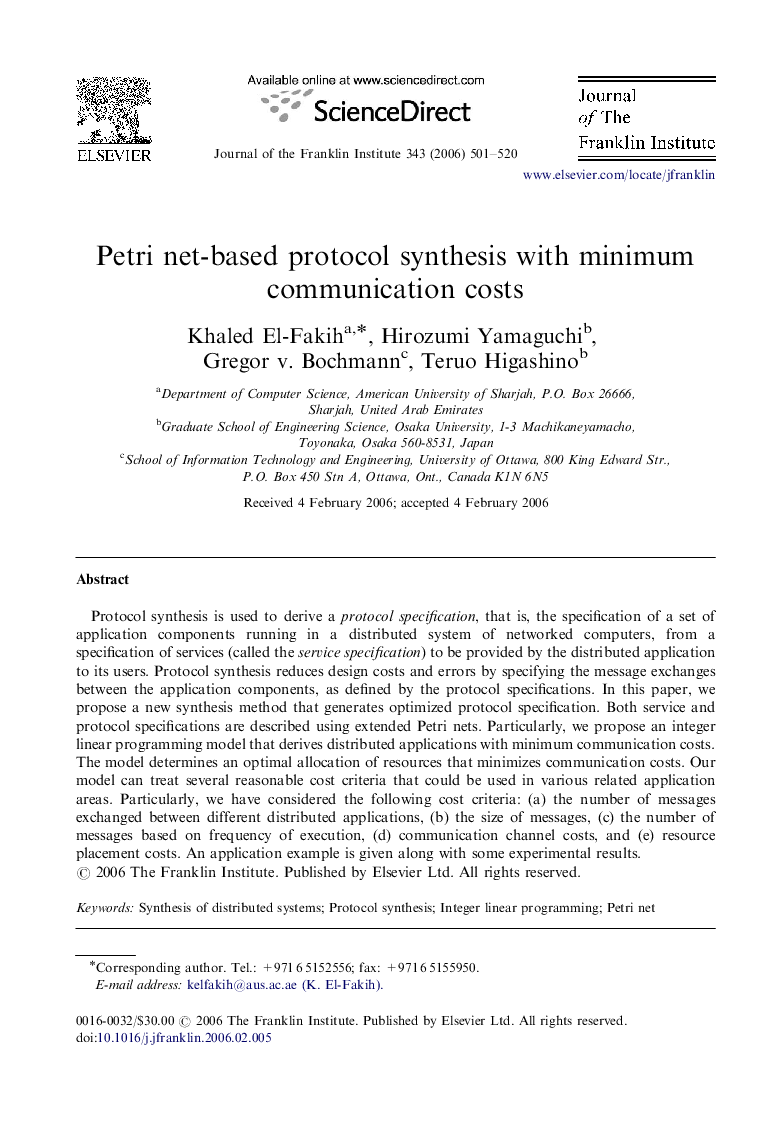| Article ID | Journal | Published Year | Pages | File Type |
|---|---|---|---|---|
| 4976558 | Journal of the Franklin Institute | 2006 | 20 Pages |
Abstract
Protocol synthesis is used to derive a protocol specification, that is, the specification of a set of application components running in a distributed system of networked computers, from a specification of services (called the service specification) to be provided by the distributed application to its users. Protocol synthesis reduces design costs and errors by specifying the message exchanges between the application components, as defined by the protocol specifications. In this paper, we propose a new synthesis method that generates optimized protocol specification. Both service and protocol specifications are described using extended Petri nets. Particularly, we propose an integer linear programming model that derives distributed applications with minimum communication costs. The model determines an optimal allocation of resources that minimizes communication costs. Our model can treat several reasonable cost criteria that could be used in various related application areas. Particularly, we have considered the following cost criteria: (a) the number of messages exchanged between different distributed applications, (b) the size of messages, (c) the number of messages based on frequency of execution, (d) communication channel costs, and (e) resource placement costs. An application example is given along with some experimental results.
Related Topics
Physical Sciences and Engineering
Computer Science
Signal Processing
Authors
Khaled El-Fakih, Hirozumi Yamaguchi, Gregor v. Bochmann, Teruo Higashino,
